What You Need
Boiling eggs doesn't get any easier than this. What is listed below is all that one needs to make the perfect boiled eggs:
- Eggs
- Water
- Ice Bath
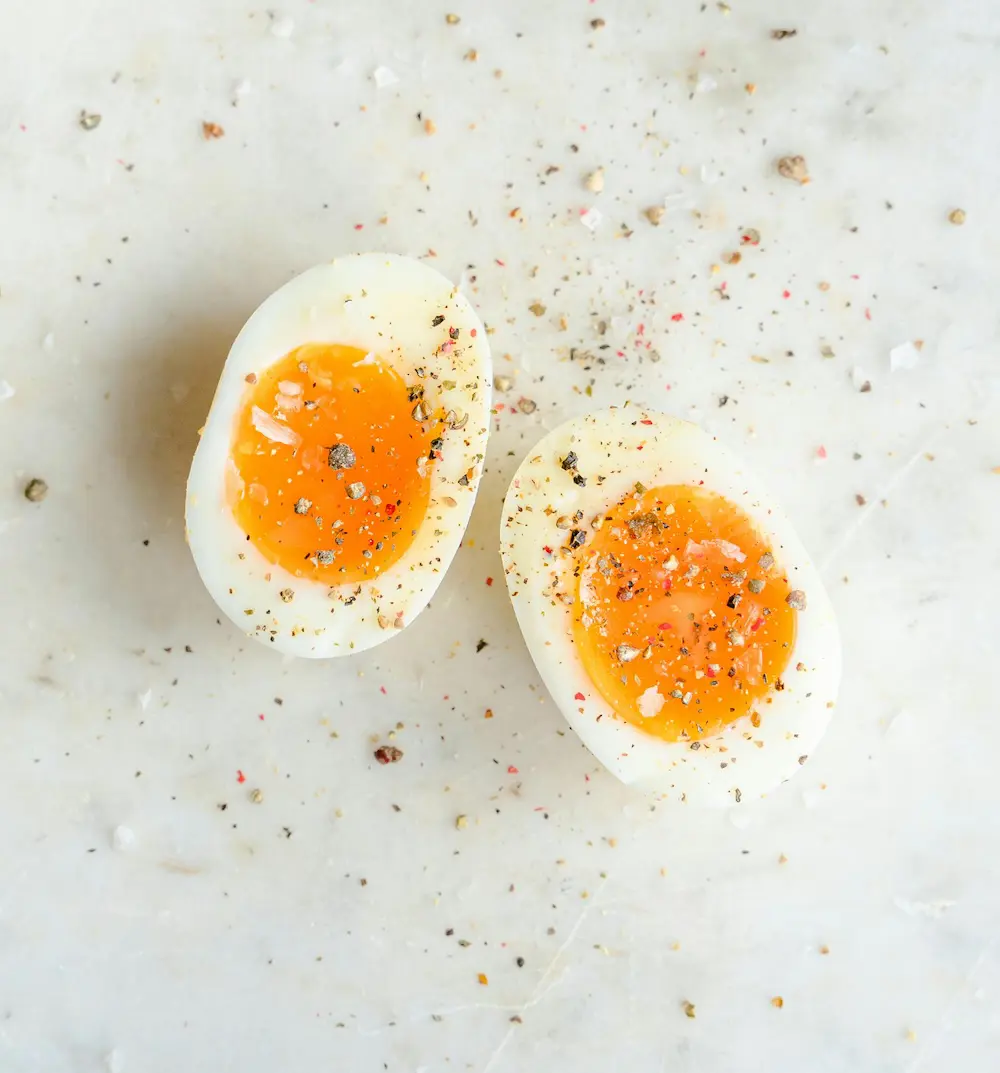
In theory, boiling eggs sounds like the easiest thing to do. I mean, it’s just eggs and water; what could possibly go wrong? However, like me, many of you may have had frustrating experiences getting the right cook on your eggs.
We went on the lookout for the ultimate style of boiling eggs so that you would have a foolproof guide to making perfect boiled eggs for your whole family.
Boiling eggs doesn't get any easier than this. What is listed below is all that one needs to make the perfect boiled eggs:
The following method for boiling eggs is our favorite for a number of reasons. But what really puts it over the top is that the eggs are also ridiculously easy to peel afterward.
Let's get boiling:
Take a saucepan and fill it with enough water to cover the eggs by an inch. Bring the water to a boil. By boiling the water first it doesn't matter what type of pot you use as all the eggs hit the water at its boiling temperature.
Boiling the water before adding the eggs also helps you monitor the cooking time.
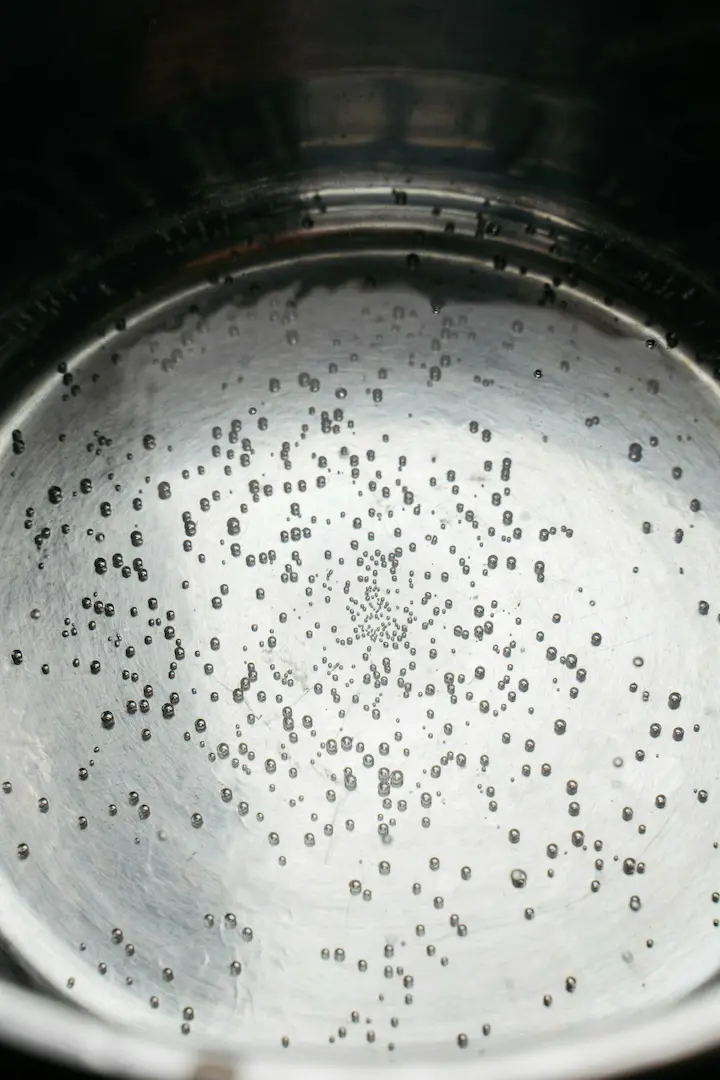
As the water is boiling fully, turn the heat down. Gently place the eggs in the water using the simmer to guide the placing of the eggs. This is done to prevent the eggs from cracking.
In case you are using refrigerated eggs, it is crucial to have them sit for some time so they reach room temperature. Throwing cold eggs into scalding water is one of the main reasons why eggs crack while boiling.
When you have set your eggs, turn the heat to high to ensure that your eggs boil at the right time.
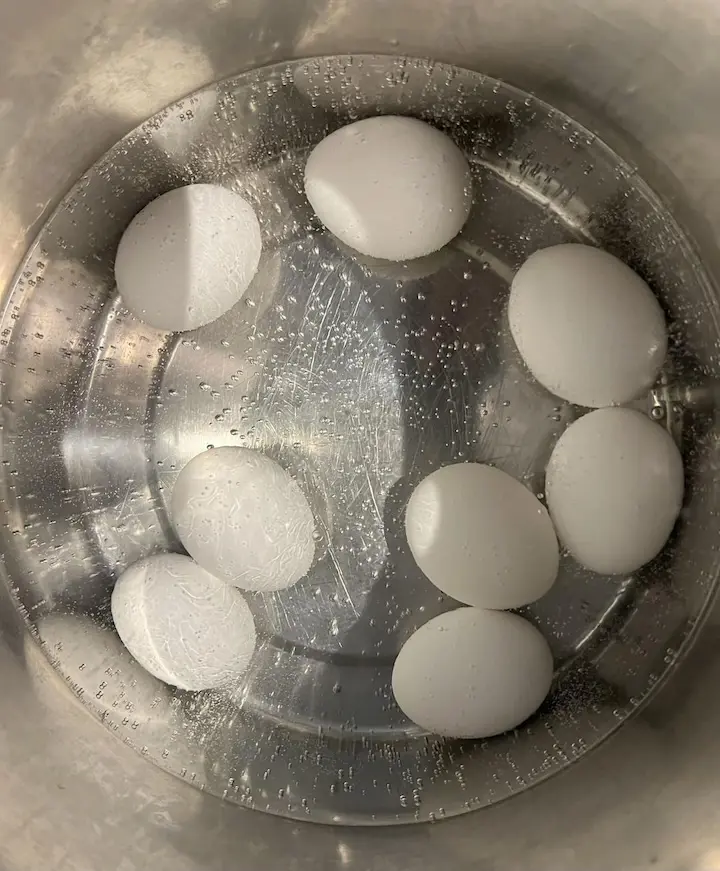
Once your eggs get in the water, set a timer.
The time at which your eggs are cooked depends on whether you are looking to achieve hard-boiled eggs or soft-boiled eggs. The following is a guideline regarding the time it requires to boil eggs:
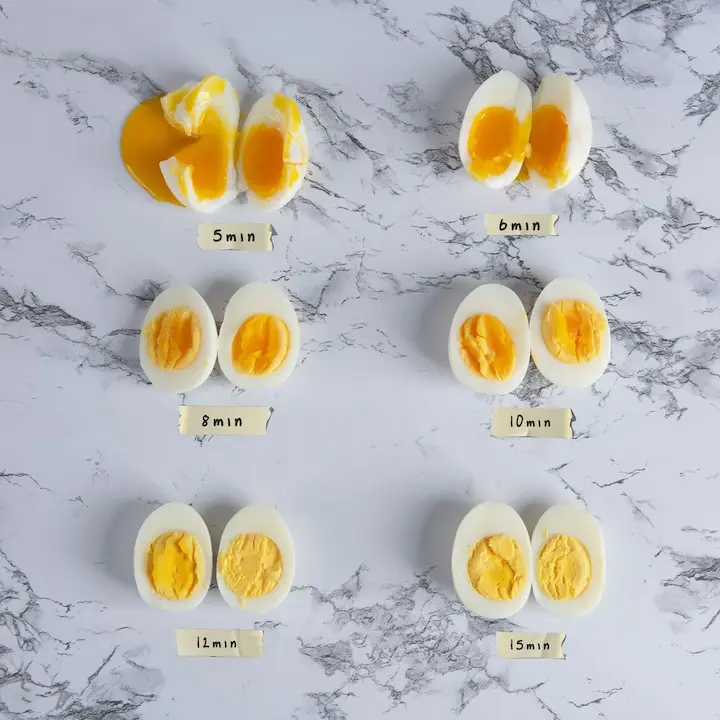
Remove the pan from heat and immediately transfer the eggs from the pan into an ice bath for 2-3 minutes. That way, you will not overcook your cooks, and it comes with the right texture.
Lack of an ice bath? You can always substitute this by just putting the eggs under cold running water.
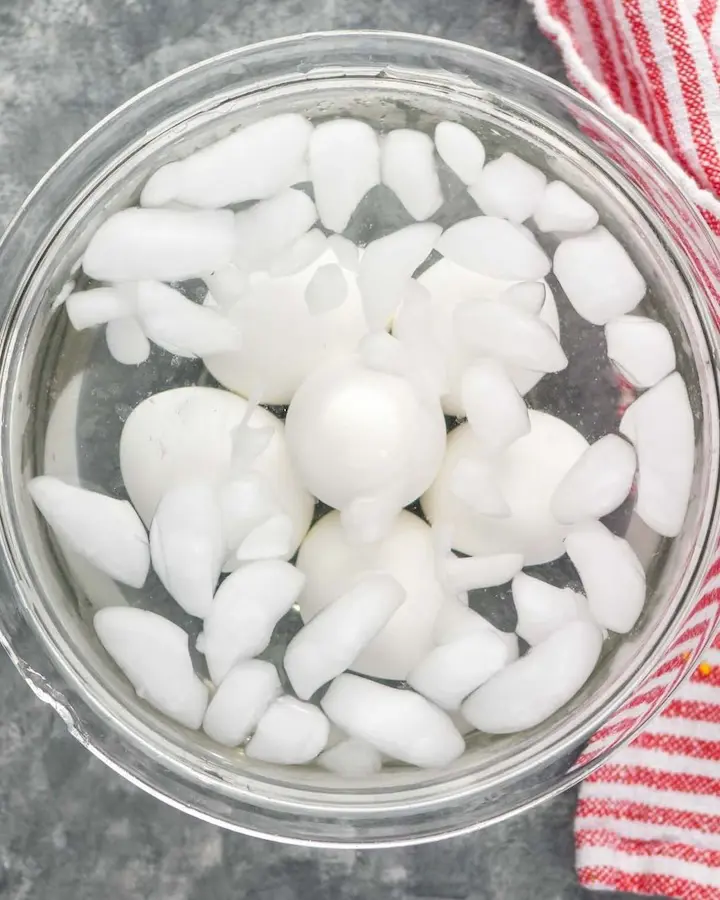
Find the heavier end of the egg, which contains an air pocket. Crack the shell and start peeling from there. You'll find a white membrane inside to help with the peeling process.
If you're still having trouble, peel the eggs under the faucet because cold water helps slide the shells off.
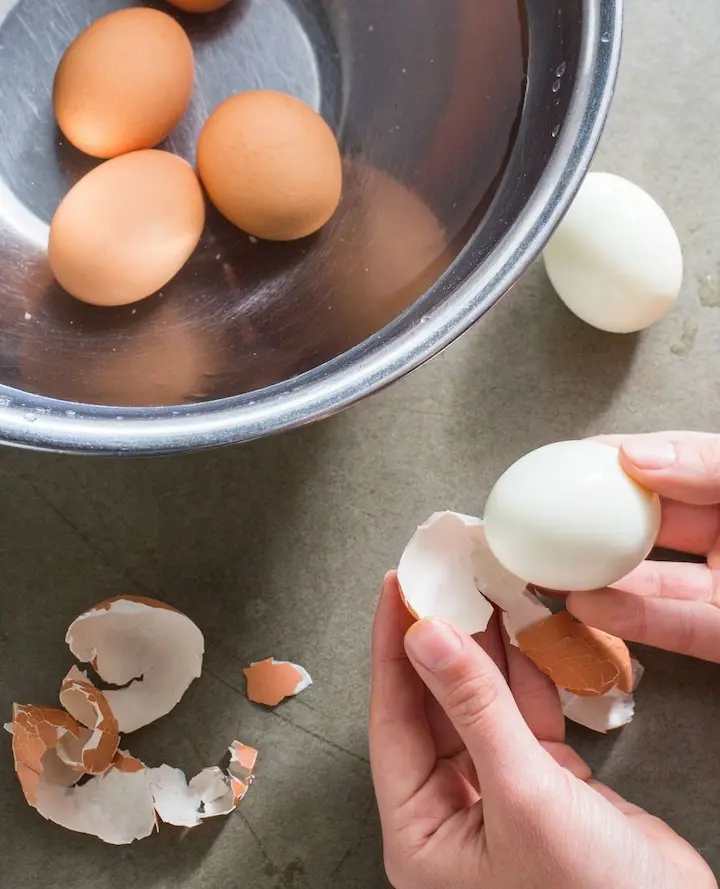
Another good tip is not to peel the eggs you aren't gonna use immediately- they'll last longer! You can actually store unpeeled boiled eggs in an air-tight container in the fridge for almost a week.
Your eggs should not crack when you're boiling them by this method. But if they do, there are certain tips that you can use to prevent it:
Why do some eggs peel nice and some come out looking catered like the moon? Well, there is no definite answer to that. As far as this goes, the old ones are typically a little easier to peel as compared to new eggs.
This is because in the case of a new egg, this layer between the eggs and the shell is hard but in the case of older eggs, the membrane degrades with time. Learn more about the freshness of the egg.
Hard-boiled eggs last up to a week in the fridge. Soft-boiled eggs, however, only last for 2-3 days. This also depends on how you store the eggs.
If it is unpeeled, it remains fresh for longer, whereas peeled eggs last for a shorter time.
Cool the hard-boiled eggs and then put them into an airtight container to keep them as fresh as possible. They should be in the fridge within the first two hours after cooking.
The best way to store boiled eggs is to let the eggs cool down to room temperature. Place them in an airtight container in your fridge.
Don't store your cooked eggs in the refrigerator door, as they will be exposed to frequent temperature changes.
Even though you can freeze raw eggs, we recommend that you don't freeze your boiled eggs, as it changes the consistency of your egg yolk.
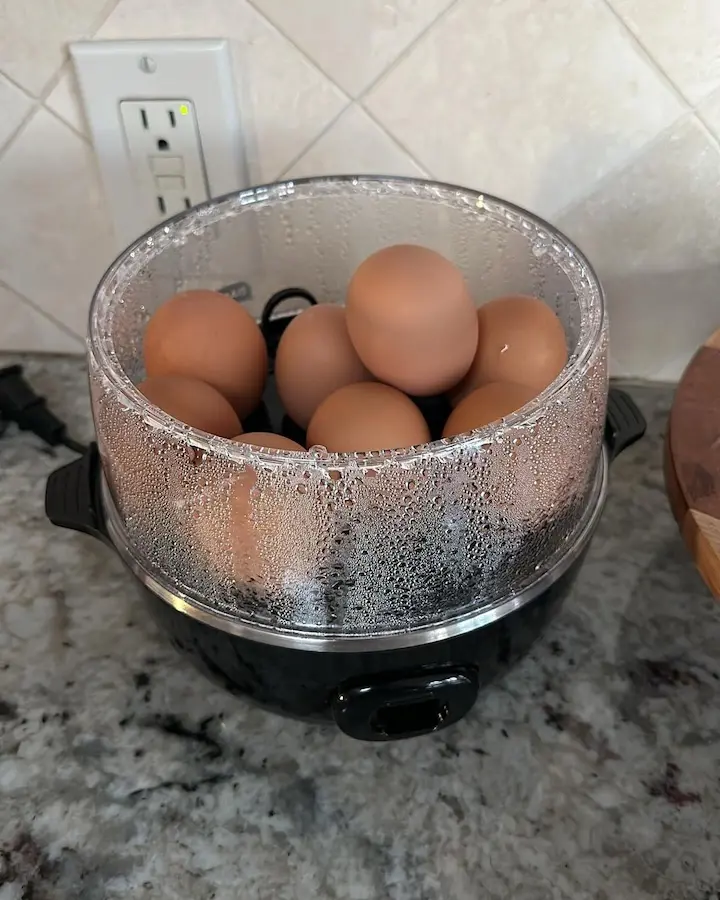
Steaming is an alternative technique that a lot of people like because of its consistency and ease of peeling. Here's how you do it:
Steamer setup: Place a steamer basket in a pot and add water below the level of the basket.
Heat the water: Bring the water to a boil.
Add eggs: Put your eggs in the steamer basket, cover, and steam for the following time:
Air fryer eggs are a great hack to 'boil' eggs. Here is how you do it:
Preheat the air fryer: Put the temperature in your air fryer at 270°F.
Add eggs: Set the eggs in the basket, leaving gaps between the eggs.
Cook: Close the air fryer and power it on. The following are the cook times for various types of boiled eggs from the air fryer:
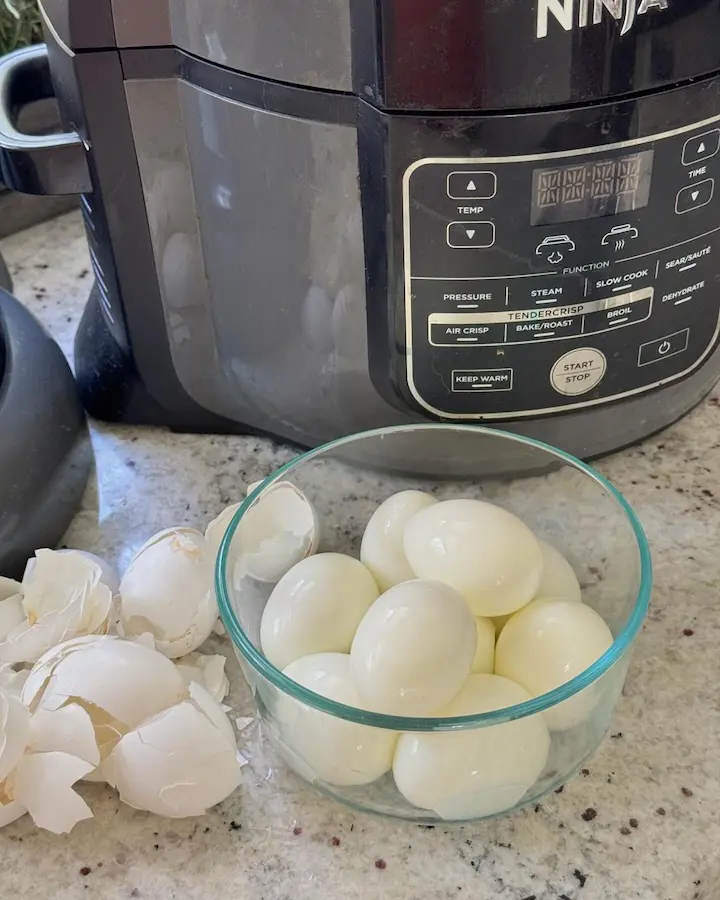
This is a great way to meal prep using an Instant Pot and save some time, as you can cook many of them at once in less than 10 minutes. Here's how you boil eggs in an Instant Pot:
Add water: Pour some water into your Instant Pot. This will eventually create steam inside the pot, cooking the eggs.
Add the eggs: Place a metal plate inside over the water and set the eggs on top of that.
Close the lid and Cook: Close the lid and set the Instant Pot to Manual. Cook the eggs for 5 minutes under high pressure.
Now the fun part! Boiled eggs are pretty versatile and can be used in different recipes, all thanks to their cooks.